MercoPress. South Atlantic News Agency
Latin America
-
Monday, October 24th 2011 - 06:12 UTC
Ecuador president condemns killing of Gaddafi and family members as ‘homicide’
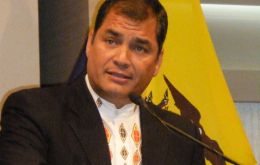
Ecuadorian president Rafael Correa described the death of former Libyan leader Muammar Gaddafi as a “murder” and strongly rejected foreign in the North African country.
-
Monday, October 24th 2011 - 04:13 UTC
Colombian president claims Gaddafi supported FARC with money
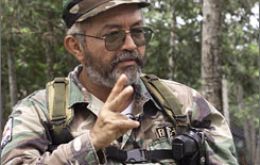
Colombian President Juan Manuel Santos said on Saturday that the death of ousted Libyan dictator Muammar Gaddafi is a moral blow for the FARC that allegedly had ties to the north African leader.
-
Monday, October 24th 2011 - 02:58 UTC
CFK manages re-election with the widest margin since restoration of democracy
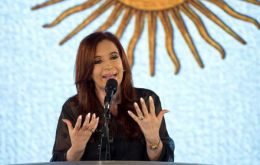
President Cristina Fernandez was re-elected in a landslide Sunday, winning with the widest victory margin in Argentina since the recovery of democracy in 1983. At midnight and with 58% of polling stations reporting CFK had 53% of the vote with runner up Socialist Hermes Binner collecting 17.7%.
-
Saturday, October 22nd 2011 - 10:45 UTC
After seven years of negotiations Obama signs US/Colombia trade agreement
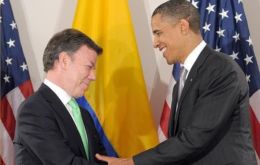
President Barack Obama signed into law the free trade agreement with Colombia Friday, marking the end of seven years of legislative effort. Obama also signed similar trade agreements with Panama and South Korea. The US Congress sent the trade bills to Obama after ratifying the agreements October 12.
-
Saturday, October 22nd 2011 - 04:29 UTC
“Closer political links with Brazil” can be expected if CFK is re-elected

The most certain re-election of Cristina Fernandez as Argentina president on Sunday 23 October is expected to signal more intense and closer relations with Brazil, expanding to other foreign affairs issues and working on a shared international agenda according to analysts from both countries .
-
Saturday, October 22nd 2011 - 04:27 UTC
Unasur receives United Nations Observer Status
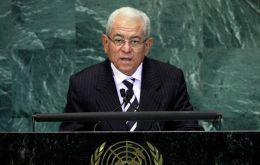
The Union of South American Nations (Unasur) received the observer status in the UN General Assembly after the committee of judicial affairs of the organization unanimously approved its request.
-
Saturday, October 22nd 2011 - 04:26 UTC
CFK poised for landslide victory and control of the congress on Sunday

Argentine president Cristina Fernandez (CFK) should be comfortably re-elected Sunday with a landslide victory which according to the latest public opinion polls indicate a support ranging from 52% to 55%
-
Saturday, October 22nd 2011 - 04:23 UTC
Bolivia’s Morales yields to Amazon Indian protests and scraps plan to build highway

President Evo Morales said Friday that he was scrapping plans to build a highway through a nature reserve in Bolivia's jungle lowlands, bowing to public pressure after a two-month protest march by Amazon Indians.
-
Saturday, October 22nd 2011 - 00:43 UTC
Mercosur and EU will be ready to exchange trade proposals ‘in June 2012’
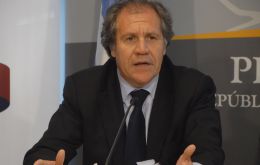
Mercosur and the European Union are committed to presenting their proposals with list of products for a free trade agreement in June 2012, announced on Friday Uruguay’s Foreign Affaire minister Luis Almagro.
-
Saturday, October 22nd 2011 - 00:42 UTC
Doctor who warned of Chavez serious health condition abandons Venezuela with his family

The Venezuelan doctor who forecast President Hugo Chavez had two years left because of the aggressiveness of his pelvic cancer said on Friday he had left the country with his family after colleagues reported police visiting his consultancy.
